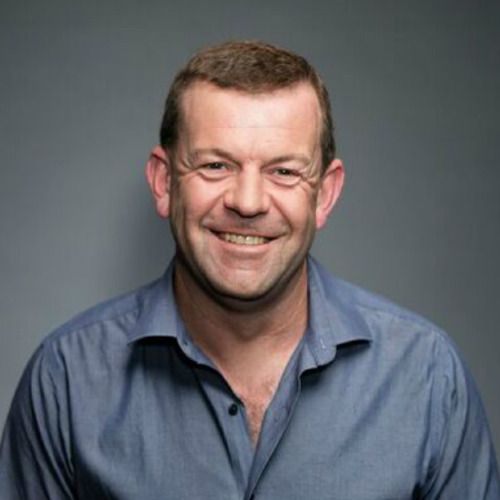Episode 118
118 - How To Be Happier
For more information on how to control your anger, visit angersecrets.com.
Are you ready to break free from anger and discover true happiness? This episode introduces the powerful ETFA model, which emphasises that it's not the events in life that trigger anger, but rather your thoughts about those events.
Podcast host Alastair Duhs shares how changing your perspective can lead to greater calmness and understanding, ultimately enhancing your emotional well-being. You'll also learn two transformative habits that can significantly boost your happiness levels.
By applying these strategies, you can take control of your anger, foster healthier relationships, and embrace a happier and more fulfilling life.
Key Takeaways:
- Changing your thoughts about events will alter your feelings and reactions.
- The ETFA model teaches that it's not events that create anger, but your thoughts about them.
- Practicing gratitude can greatly enhance your overall happiness levels.
- Generosity towards others can lead to increased happiness for both you and them.
- By focusing on what you appreciate in life, you can shift your emotional state.
- Engaging in acts of kindness can create a positive feedback loop of happiness.
Links referenced in this episode:
For more information (and FREE resources) of how to control your anger, visit angersecrets.com.
For a FREE training on how to control your anger, visit angersecrets.com/training/.
To learn more about The Complete Anger Management System, visit angersecrets.com/course/.
Transcript
Are you tired of feeling consumed by your anger?
Alastair Dewes:Do you long for lasting peace and happiness in your life?
Alastair Dewes:Are you ready to break free from the grip of anger and discover true joy and contentment?
Alastair Dewes:If so, in today's episode of the Anger Secrets podcast, I'll introduce a revolutionary anger management model that goes far beyond controlling your temper.
Alastair Dewes:It's a blueprint for rewiring your thoughts to create a calmer, happier and more joyful life.
Alastair Dewes:You'll also learn two simple, yet life changing habits that can help you stop chasing happiness and start living it.
Alastair Dewes:If you're ready to leave anger, frustration and resentment behind you and step into a life filled with gratitude, generosity and peace, this episode is your starting point.
Alastair Dewes:Hello and welcome to episode 118 of the anger Secrets Podcast.
Alastair Dewes:I'm your host, Alastair Dewes, and over the last 30 years I've taught over 15,000 men and women how to control their anger, master their emotions and build calmer, happier and more respectful relationships.
Alastair Dewes:In this podcast, I share some of the same powerful tools and techniques that have helped my clients transform their lives.
Alastair Dewes:For free support on your anger management journey, including a free training and the opportunity to book a free 30 minute anger assessment, call with me, visit my website, anger secrets.com I'd be honoured to support you in taking control of your anger once and for all.
Alastair Dewes:Now let's jump into today's episode, how to break free from Anger and find Happiness.
Alastair Dewes:To begin this episode, let me remind you of a powerful anger management model I share with all of my clients.
Alastair Dewes:This model is called the ETFA model and it states that it is not the events in your life that happen to you that create your anger.
Alastair Dewes:It is the thoughts you have about these events that create your anger.
Alastair Dewes:I have discussed the ETFA model in previous episodes of this podcast and it is one of the most powerful anger management models there is.
Alastair Dewes:The ETFA model also implies that if you change your thoughts about events, you can change your feelings about these events, meaning that you may not get angry in situations that would have previously made you furious.
Alastair Dewes:To give an example of the ETFA model, imagine you are driving your car and suddenly another driver cuts in front of you in response to this event.
Alastair Dewes:You may think, what an idiot.
Alastair Dewes:How dare they do that to me?
Alastair Dewes:Or I can't believe they just did that.
Alastair Dewes:What a jerk.
Alastair Dewes:These thoughts will then lead to feelings of anger which can easily lead to actions such as shouting or swearing at the other driver, making rude gestures, or even chasing the car.
Alastair Dewes:However, according to the ETFA model, if you change your thoughts about this event, you will change your feelings.
Alastair Dewes:For example, instead of thinking, what an idiot, how dare they do that to me.
Alastair Dewes:You could think, they must have been in a rush.
Alastair Dewes:I hope they get to their destination safely.
Alastair Dewes:This thought will lead to feelings of calmness and understanding rather than anger.
Alastair Dewes:And these new feelings will lead to very different actions, such as you simply letting the car go ahead.
Alastair Dewes:So how does this relate to being happier?
Alastair Dewes:To answer this question, let me tell you a quick story.
Alastair Dewes:Many years ago, I discussed the ETFA model with Jason, a 45 year old man I was working with.
Alastair Dewes:After I explained this model to Jason, he said that a few years before coming to see me, he had been diagnosed with a terminal illness and given six months to live.
Alastair Dewes:This diagnosis was understandably very traumatic for Jason.
Alastair Dewes:Soon, however, after his initial shock and anger about this diagnosis, he sought conventional medical treatment for his illness.
Alastair Dewes:Unfortunately, this treatment was unsuccessful.
Alastair Dewes:Increasingly desperate, Jason then turned to alternative medical practitioners to help.
Alastair Dewes:Eventually, he found a practitioner who, after a thorough examination, said that he thought he could help Jason.
Alastair Dewes:This practitioner put Jason on an experimental course of treatment with a very low success rate.
Alastair Dewes:Despite this, this experimental treatment worked for Jason and he fully recovered from his illness.
Alastair Dewes:Today, Jason is fit and healthy again.
Alastair Dewes:Although his life expectancy has dropped a lot due to the effects of this experimental treatment.
Alastair Dewes:Jason told me that this experience had taught him a profound lesson about life.
Alastair Dewes:He said that before his illness, he had spent a lot of time worrying about things that weren't important in the big scale of things such as work deadlines and house renovations.
Alastair Dewes:He also shared that before his diagnosis, he had never really taken the time to enjoy life, spending most of his days rushing from one task or commitment to another.
Alastair Dewes:However, after almost losing his life, Jason realised what was truly important to him, spending time with loved ones and enjoying the present moment.
Alastair Dewes:He also said that he now valued things such as watching the sunset or walking along the beach far more than ever before.
Alastair Dewes:And because his thinking about all aspects of life had changed, he said he was much happier now than he had been before his diagnosis.
Alastair Dewes:Jason's story shows the power of changing your thoughts to feel happier in life.
Alastair Dewes:By changing your thoughts about events, you can change your feelings about these events leading to greater happiness in your day to day life.
Alastair Dewes:When I tell this story to clients I work with, the most common question I get is, this all sounds good Alastair, but how do I change my thoughts about events to become happier?
Alastair Dewes:Luckily, there has been much research on this question and in my understanding there are two powerful habits that anyone can practice to become happier and more content in life.
Alastair Dewes:These habits habit 1 be more grateful and habit 2 practice generosity towards others.
Alastair Dewes:Let's look at both of these habits in more detail.
Alastair Dewes:Be more Grateful Happiness Research over the years has shown that being more grateful for what you have in your life is one of the most powerful ways to increase your happiness levels.
Alastair Dewes:This means taking the time to reflect on the good things in your life and appreciating them and focusing on the things you have in life rather than the things you don't.
Alastair Dewes:Some simple ways to increase your gratitude levels Keep a daily journal and write down three things you are grateful for every day.
Alastair Dewes:Set aside time each day to think about and appreciate the good things in your life.
Alastair Dewes:Express gratitude towards others either through words or actions and make a conscious effort to focus on the positive aspects of your life rather than dwelling on the negative.
Alastair Dewes:Practice generosity towards others the second way to increase happiness is through practising generosity towards others.
Alastair Dewes:Studies have shown that even small acts of generosity can powerfully affect your happiness.
Alastair Dewes:Some simple ways to practice generosity Volunteering your time to help those in need Donating money or resources to a charity or cause you care about Performing random acts of kindness for friends, family and strangers or simply trying to be more giving in your daily interactions with others.
Alastair Dewes:By incorporating these two habits into your life and actively working on changing your thoughts through the ETFA model, you can not only decrease your anger levels, but also increase your overall levels of happiness and live a more calmer, more fulfilling and content life.
Alastair Dewes:Remember too that whether it is related to anger or happiness, your thinking is the most powerful thing in how you experience all aspects of life.
Alastair Dewes:Change your thinking and you will change your life.
Alastair Dewes:Okay, that's all for today's episode.
Alastair Dewes:Be sure to tune into the next episode to learn how to take a time out effectively.
Alastair Dewes:If you found this episode helpful, please follow this podcast.
Alastair Dewes:Head over to your favourite podcast app and leave a rating and review.
Alastair Dewes:This helps other people struggling with anger to find and benefit from this show.
Alastair Dewes:Remember, for free support on your anger management journey, including free training and the opportunity to book a free 30 minute anger assessment, call with me, visit my website angersecrets.com or if you would like to control your anger once and for all.
Alastair Dewes:Visit angersecrets.com course to learn more about the complete anger management system.
Alastair Dewes:I look forward to helping you control your anger once and for all.
Alastair Dewes:Finally, remember, you can't control other people, but you can control yourself.
Alastair Dewes:I'll see you in the next episode.
Alastair Dewes:Take care.
Speaker B:The Anger Secrets Podcast is for general informational purposes only and does not constitute the practice of counseling, psychotherapy, or any other professional health service.
Speaker B:No therapeutic relationship is implied or created by this podcast.
Speaker B:If you have mental health concerns of any type, please seek out the help of a local mental health professional.


